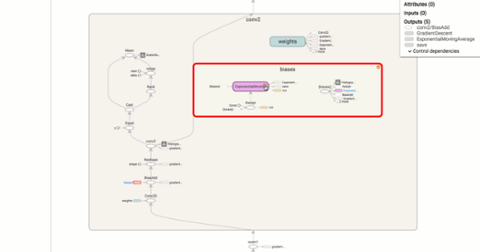Google TensorFlow 2.0 Promises More Refined Machine Learning
TensorFlow, the popular machine-learning library (and one of 2018’s fastest-growing, highest-paying tech skills), will undergo a significant v2.0 update, with a preview coming later this year. “Shortly, we will hold a series of public design reviews covering the planned changes,” Martin Wicke, a software engineer for Google Brain and a key member of the TensorFlow team, wrote in an August 13 posting to a Google Group devoted to TensorFlow updates. “This process will clarify the features that will be part of TensorFlow 2.0, and allow the community to propose changes and voice concerns.” Initially developed as an internal tool for the Google Brain team, TensorFlow was released in November 2015 under an Apache 2.0 open-source license. Developers can insert the TensorFlow libraries into their own code in order to speed up the machine-learning process; for example, if you want to build a computer-vision platform that recognizes certain faces, TensorFlow’s deep-learning assets can make that a reality. The open-sourcing is key here: by figuring out how to best use TensorFlow as the spine of their machine-learning projects, researchers are helping the larger A.I. field evolve—even as they’re giving Google more ideas for improving TensorFlow’s fundamentals. Originally written in C++, TensorFlow will support more languages and platforms in v2.0. With the next version, Google plans on making things more efficient by removing deprecated APIs (including some without a direct equivalent, although there will be a compatibility module), as well as eliminating as much duplication as it can. “To ease the transition, we will create a conversion tool which updates Python code to use TensorFlow 2.0 compatible APIs, or warns in cases where such a conversion is not possible automatically,” Wicke added. “A similar tool has helped tremendously in the transition to 1.0.” Google will also stop working on TensorFlow 1.x once 2.0 rolls out, although it will issue security patches to 1.x for a year after the new release. According to data from Dice and Upwork, tech professionals who have mastered TensorFlow and other machine-learning platforms can expect to earn an average of $160,478 per year. As more and more companies wake up to the potential of deep learning to boost the efficiency (and profits) of their products and services, more will seek out tech pros with these highly specialized skills. If you’re interested in learning how to actually use TensorFlow, Google provides some handy tutorials via a dedicated website; and in the Google Developer portal, there’s also a “crash course” in machine learning that’s worth checking out for those new to the concept.



